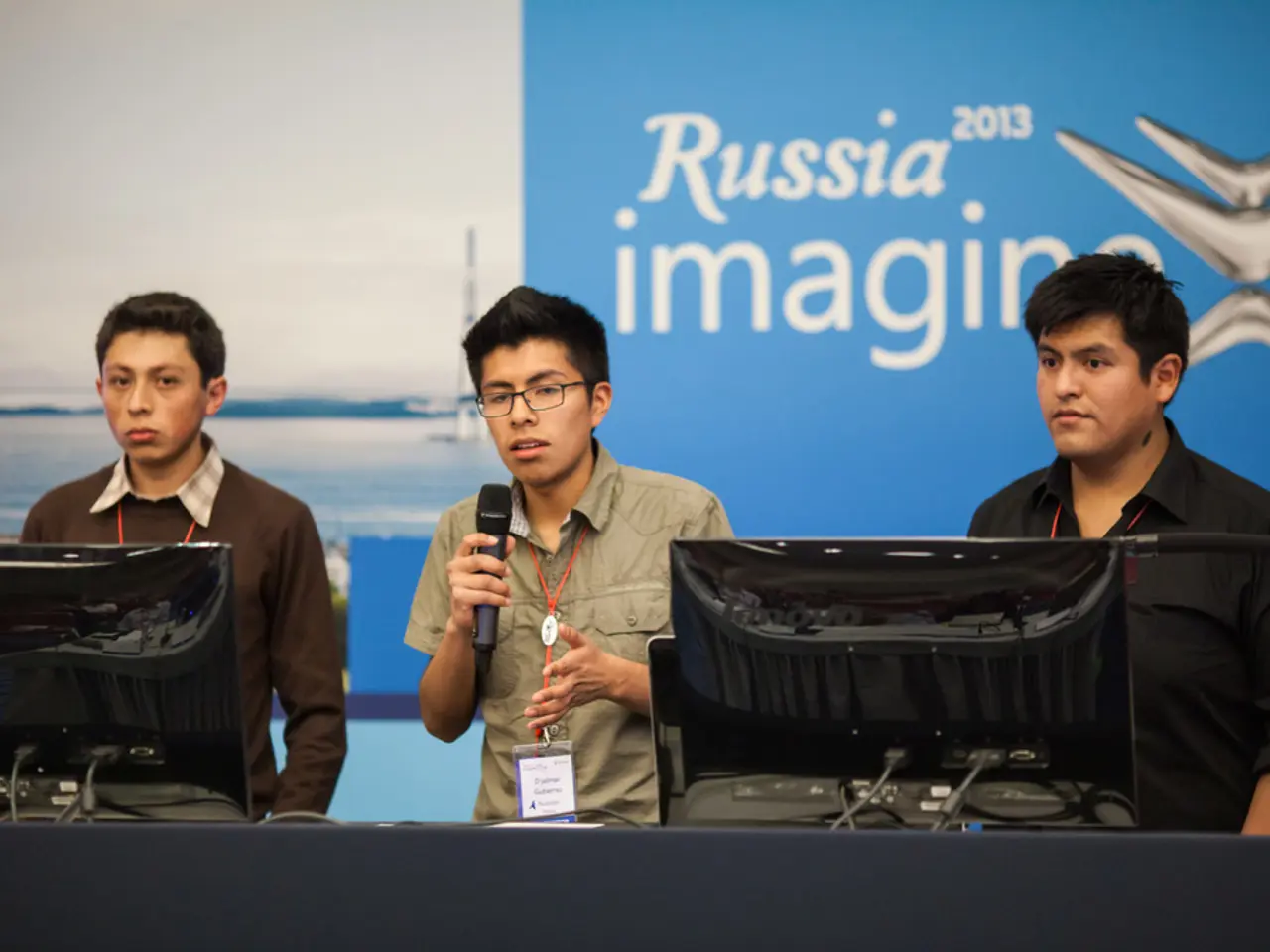Digital Suppression Discussions on Podcast: Emergence of Online Censorship
In a recent episode of the Irregular Warfare Podcast, authors Steven Feldstein and John Tullius delve into the rising phenomenon of digital repression and its impact on democracy, information warfare, and methods to combat this formidable challenge.
Feldstein, the author of "The Rise of Digital Repression: How Technology is Reshaping Power, Politics, and Resistance," and Tullius, a retired CIA agent now teaching intelligence at the Naval Postgraduate School, join hosts Matt Moellering and Julia McClenon for an enlightening conversation.
Digital repression, as explained in the episode, is a form of control exerted by authoritarian regimes in online environments. The discussion sheds light on various tactics employed by such regimes, such as pervasive internet censorship, AI-driven surveillance, and imposing internet blackouts to silence opposition.
China, for instance, has developed advanced internet censorship tools and "smart city" surveillance technologies that monitor citizens extensively, stifling free expression. Iran employs anticipatory digital suppression by combining internet blackouts with cyber repression during crises, aiming to blind information flows, criminalize online dissent, and maintain regime control while obstructing external monitoring of unrest. Russia uses legislation to ban VPNs, restrict information via "Sovereign Internet" initiatives, and automates surveillance through state-operated Telegram bots.
However, the episode also highlights the resilience of resistance groups and civil society, who adapt to these repression methods by leveraging the very digital tools that authoritarian regimes seek to control. Social media campaigns, such as Masih Alinejad’s "My Stealthy Freedom" in Iran, play a critical role in empowering citizens to share videos exposing abuses despite censorship. Activists also employ technology to bypass censorship, using virtual private networks (VPNs), anonymity tools, and decentralized platforms to maintain communication and spread information.
Democracies and international civil society partners support these efforts by developing and disseminating open-source censorship-circumvention technologies and advocating for digital rights and internet freedom. Resistance adapts by emphasizing secure communication technologies, expanding awareness about digital repression tactics, and fostering international coalitions to counteract authoritarian cyber strategies.
Listeners can access the full episode of the Irregular Warfare Podcast discussing digital repression on various platforms, including Facebook, Twitter, LinkedIn, via email, or by printing it out. The episode can also be subscribed to on Apple Podcasts, Stitcher, TuneIn, Spotify, or your favourite podcast app.
The episode's image credit is dahorsburgh.
[1] Feldstein, Steven. (2020). The Rise of Digital Repression: How Technology is Reshaping Power, Politics, and Resistance. Oxford University Press. [2] Alinejad, Masih. (2019). The Wind in My Hair: My Fight for Freedom in Modern Iran. Grand Central Publishing. [3] Tullius, John. (2018). The Future of Intelligence: How the Digital Revolution is Transforming Spycraft. St. Martin's Press. [4] El-Nawawy, Mohamed, & Kteily, Aman. (2019). Digital Activism and Citizen Journalism in the Arab World. Routledge.
- The conversation on the Irregular Warfare Podcast discusses the impact of cyberspace on war-and-conflicts, particularly digital repression, a form of control exerted by authoritarian regimes in online environments, which includes tactics like internet censorship, AI-driven surveillance, and internet blackouts.
- In their book, "The Rise of Digital Repression: How Technology is Reshaping Power, Politics, and Resistance," author Steven Feldstein delves into the influence of technology on politics and resistance in today's general-news climate.
- The authors of the episode, Feldstein and Tullius, also speak about the role of intelligence, technology, and cybersecurity in the ongoing battle between authoritarian regimes and resistance groups in the realm of information warfare.




